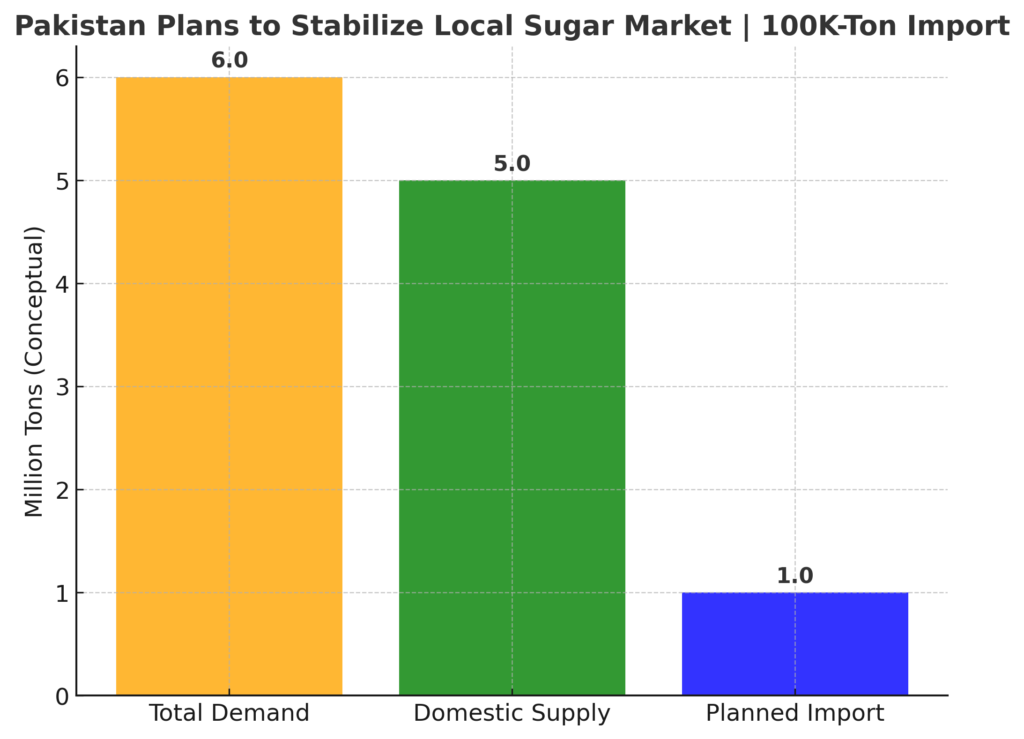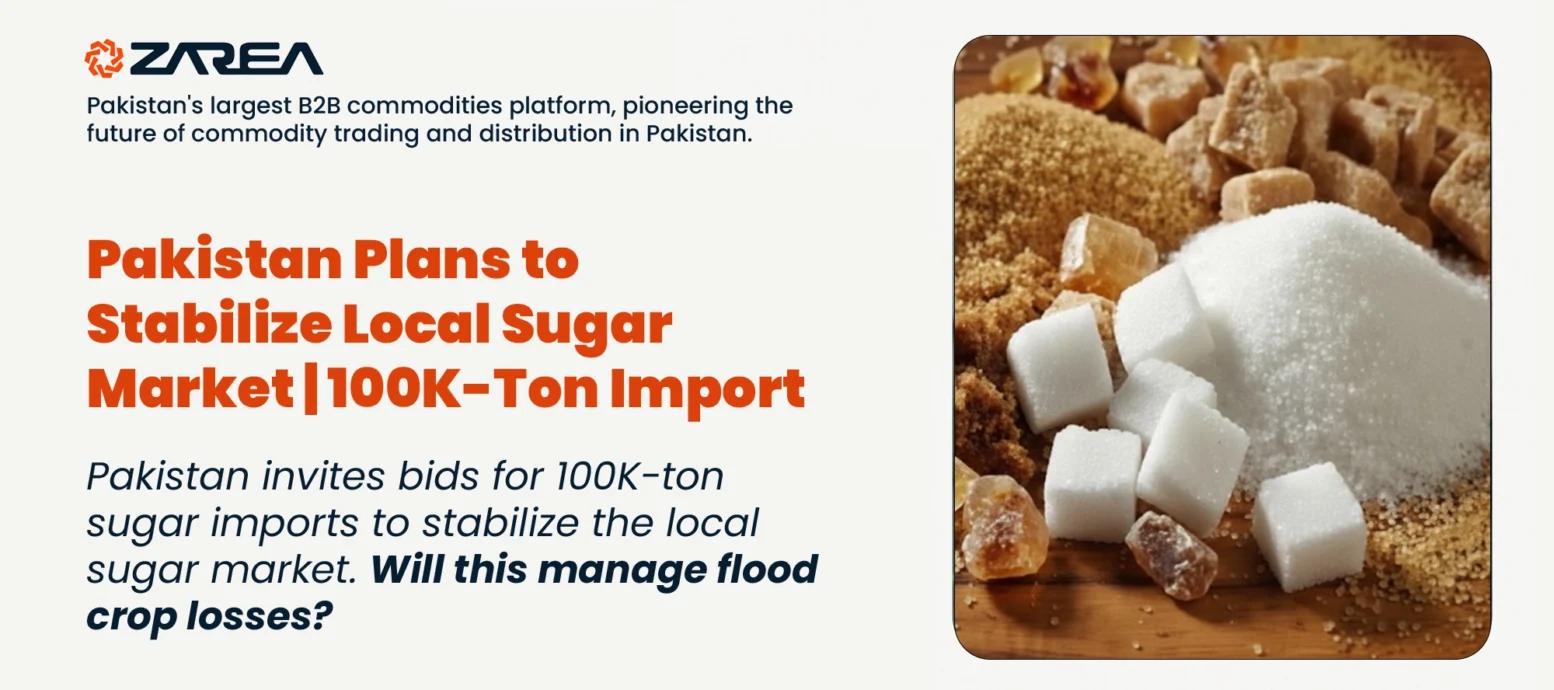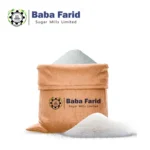Introduction – International & Local Sugar Market:
By encouraging international producers to provide 100,000 tonnes of sugar through the state-run Trading Corporation of Pakistan (TCP), the Pakistani government has taken a bold move to stabilise its sugar market. The bidding, which is available until September 23, is a component of a larger plan to manage price volatility and guarantee enough supply in the face of meteorological and seasonal constraints.
100K-Ton+ Import Plan:
The government’s desire for bulk buying to fulfil urgent market need is highlighted by TCP’s tender notice, which states that offers less 25,000 tonnes would not be taken into consideration. With ambitions to acquire between 300,000 and 500,000 tonnes of sugar in the upcoming months, this acquisition is the first of a broader import program.
Concerns over domestic supply in the wake of recent floods that somewhat damaged sugarcane fields are reflected in the projected import quantities. Although the effect on rice and sugarcane output is controllable, officials have made it clear that precautions are being taken to prevent supply shortages that would raise consumer prices.
Why Stabilization is Necessary:
Historically, Pakistan’s sugar market has been volatile for a number of reasons:
- Supply Fluctuations: Seasonal dependence on local cane crushing and harvest cycle delays are examples of supply fluctuations.
- Natural Disruptions: Crop production are frequently impacted by droughts and floods.
- Price Sensitivity: Since sugar is a basic food, any increase has an immediate effect on household spending plans.
The government hopes to avoid abrupt price increases and stabilise retail markets before the season of peak use by ensuring timely imports.

Visit Zarea right now! Look through our product lists, make your purchase, and save money right now! It is the biggest business-to-business (B2B) commodity marketplace in Pakistan. It also establishes the norm for the country’s future product distribution and commerce.
Broader Policy Context:
Pakistan’s continuous balancing act will assist local farmers confidently. Meanwhile this import scheme also guarantees consumer affordability. Although these temporary imports serve as a safeguard against unforeseen shortages and speculative trading on the sugar market. Yet preserving domestic production is still a top governmental objective.
In an effort to promote stability at home, other nations like Indonesia and India have also lately modified their white sugar trading regulations. Pakistan’s action, which prioritises food security while defending economic interests, is consistent with this regional strategy.
Outlook of The Import:
First of all, a big purchase plan of up to 500,000 tonnes is anticipated to provide a safety net against future volatility. Meanwhile the 100,000-ton import will relieve short-term pressure on the sugar market. Although if handled successfully it will make sure the sugar market has stability. On the other hand the government’s proactive approach demonstrated its dedication to safeguarding the general economy. Moreover it will also secures consumers from the inflationary shock of high sugar prices.
Final Thoughts:
Pakistan has demonstrated a practical approach to market management by inviting tenders for the import of sugar. Imports will be a crucial instrument to keep the sugar market stable even if domestic sugarcane output is still mostly intact. In addition to resolving immediate consumer concerns, the government is bolstering its overarching objective of food security during an uncertain period by guaranteeing a steady supply.
































